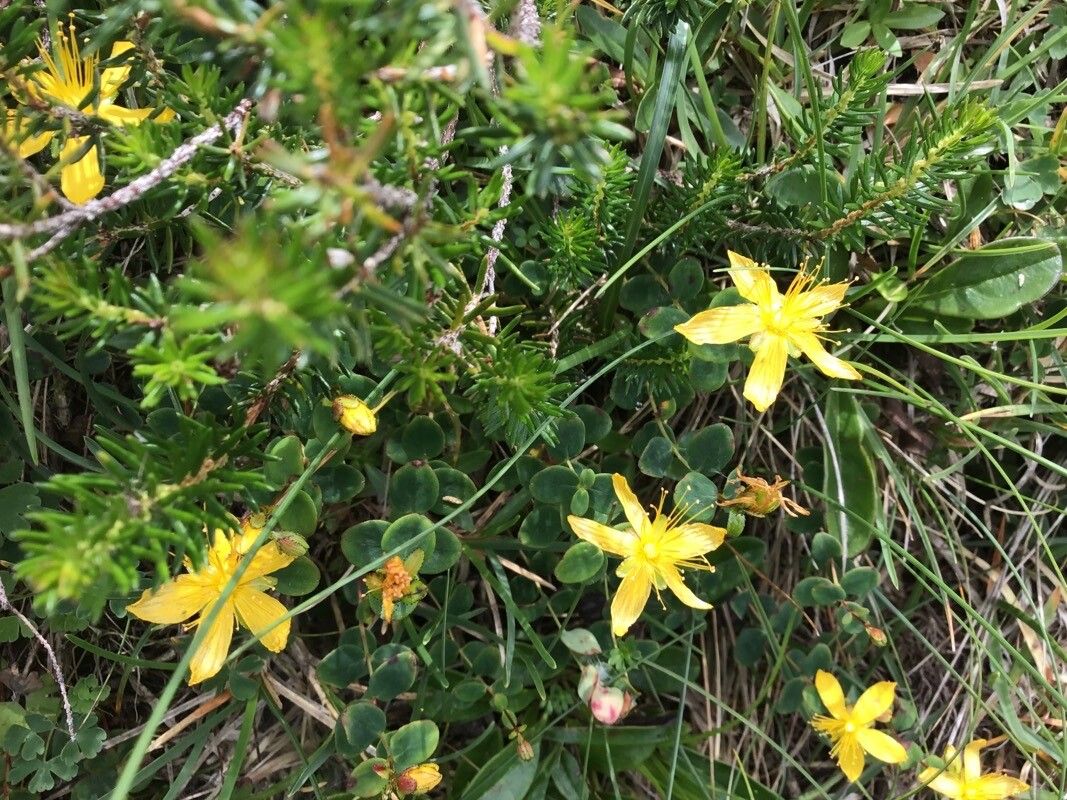Disclaimer: This Materia Medica is provided for informational purposes only and should not replace professional medical advice. Please consult with a qualified healthcare practitioner or herbalist before using any herbal remedies.
St. John’s Wort (Hypericum perforatum) Materia Medica
Introduction: St. John’s Wort is a well-known herb in the world of herbal medicine, valued for its numerous therapeutic properties. As a professional herbalist, I will provide you with an exhaustive Materia Medica for St. John’s Wort, encompassing its history, botanical characteristics, constituents, medicinal uses, dosages, safety considerations, and more.
Botanical Description:
- Botanical Name: Hypericum perforatum
- Family: Hypericaceae
- Common Names: St. John’s Wort, Tipton’s Weed, Klamath Weed
- Habitat: Native to Europe, St. John’s Wort can now be found in many parts of the world, growing in fields, meadows, and along roadsides.
Botanical Characteristics:
- St. John’s Wort is a perennial herbaceous plant that can grow up to 1 meter in height.
- The plant has distinctive yellow flowers with five petals and numerous stamens, appearing in late spring to early summer.
- The leaves are opposite, oblong, and dotted with translucent glands that release a reddish oil when crushed.
- The stem is erect, often woody at the base, and contains characteristic black dots.
- St. John’s Wort produces small, dark-brown, capsule-like fruits that contain numerous tiny seeds.
Constituents:
- Hypericin
- Hyperforin
- Flavonoids (quercetin, rutin, and others)
- Essential oils
- Tannins
- Resins
- Phenolic compounds
Medicinal Uses:
- Mood Support: St. John’s Wort is renowned for its potential to alleviate mild to moderate depression and anxiety. It is believed to work by increasing the levels of certain neurotransmitters like serotonin and dopamine.
- Nervous System Health: This herb is used to support the nervous system, helping to ease nervous tension and promote relaxation.
- Antiviral Properties: St. John’s Wort has demonstrated antiviral activity and is sometimes used in the treatment of herpes simplex and other viral infections.
- Wound Healing: The oil extracted from St. John’s Wort has been used topically to aid in wound healing, especially for minor burns, bruises, and skin irritations.
- Anti-Inflammatory: It possesses anti-inflammatory properties and may be beneficial for conditions like arthritis.
- Nerve Pain Relief: Some individuals find relief from certain types of nerve pain, such as sciatica, with the use of St. John’s Wort.
- Menopausal Symptoms: It is sometimes used to manage mild menopausal symptoms like mood swings and hot flashes.
Dosage:
- Dried herb (infusion or capsule): 300-900 mg, three times a day
- Standardized extract (0.3% hypericin): 300-900 mg, three times a day
- Tincture (1:5, 30% alcohol): 2-4 mL, three times a day
Safety Considerations:
- St. John’s Wort can interact with various medications, including antidepressants, birth control pills, and anticoagulants. Consult a healthcare professional before use, especially if you are taking any prescription medications.
- Avoid prolonged sun exposure when using St. John’s Wort as it can make your skin more sensitive to sunlight, causing phototoxic reactions.
- Pregnant and breastfeeding women should avoid using St. John’s Wort.
- Individuals with bipolar disorder or a history of mania should use this herb cautiously.
- Do not use St. John’s Wort in combination with other antidepressants without medical supervision.
Conclusion: St. John’s Wort is a versatile herb with a rich history of traditional use in herbal medicine. As a professional herbalist, I recommend consulting with a qualified healthcare practitioner before incorporating it into your health regimen, especially if you have any underlying medical conditions or are taking medications. When used judiciously and safely, St. John’s Wort can offer valuable support for mood, nervous system health, and more.






One comment on “St. Johns Wort: Herbal Plant Profile”